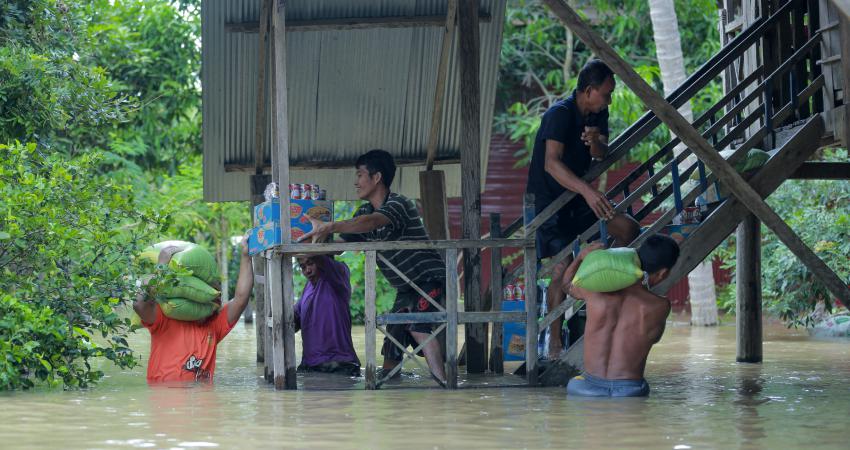Migration Officers Strengthen Their Capabilities to Communicate During Crises

A message transmitted in time can save someone’s life. With this premise, the Commission of Migration Authorities (OCAM) of the member countries of the Central America Integration System (SICA), in conjunction with the International Organization for Migration (IOM), developed a regional workshop on emergency and migratory crisis communication.
Migration officials from the areas of communication, press, migration control, and care for migrants from 8 different OCAM member countries, participated in a three-day workshop (May 18, 19, and 20) on the essential role of communication in these issues.
During the virtual workshop, practical exercises on emergency response and keynote presentations on communication as a life-saving element were shared. In addition, government representatives discussed communication strategies that facilitate the inclusion of migrants in emergency preparedness, response, and recovery in their countries of origin, transit, or destination.
“As migration officials working in preparedness and emergencies in OCAM member countries, we are not unaware of this reality, they are contexts we live almost every year. Every year we have an issue that binds all countries, one example is migrant caravans. We need to know how to communicate in this context by ensuring the respect for and dignity of migrants to be able to focus on crisis prevention, preparedness, and response” commented Daguer Hernández, Deputy Director of the Costa Rican General Directorate of Migration and Aliens, representing the Pro Tempore Presidency.
The activity emerged as a response to an increasingly complex context of human mobility. Massive migratory flows continue to occur in Central America, as well as an increase in the number of migrants opting for other channels of irregular migration, particularly to the north of the continent. Intra- and extra-regional migratory movements are caused by a multitude of factors, including socio-economic difficulties exacerbated by the pandemic, disasters and events related to climate change, and situations of violence, to name a few.
"It is crucial that, even in emergency contexts, the rights and dignity of migrants are upheld," said Alexandra Bonnie, IOM’s Western Hemisphere Program Coordinator. "IOM promotes the strengthening of capacities of OCAM member States to better integrate migrants into emergency prevention, preparedness and response systems".
Communicating during migratory crises means placing migrants not only as beneficiaries of assistance, but also recognizing their capacities and central role in the response. For this purpose, the MICIC Guidelines for the Protection of Migrants in Countries Affected by Conflict or Natural Disasters and IOM’s Practical Guide for Communicating in the context of migratory crises were used as background material for this workshop.
About the workshop, Ariel Flores, who was one of the participants, said: "the activity was very interactive and highlighted the importance of communicating in simple ways, in addition to creating material in accordance with what is lived in our country. It is important to know what the conditions are like to help people at the right time. There was also reflection on the importance of having translators, among other things".
This workshop is part of OCAM’s January-June 2021 Work Plan and is supported by IOM’s Western Hemisphere Program, funded by the United States Department of State Bureau of Population, Refugees and Migration.
For more information, please contact OCAM’s Technical Secretariat at ocamst@iom.int